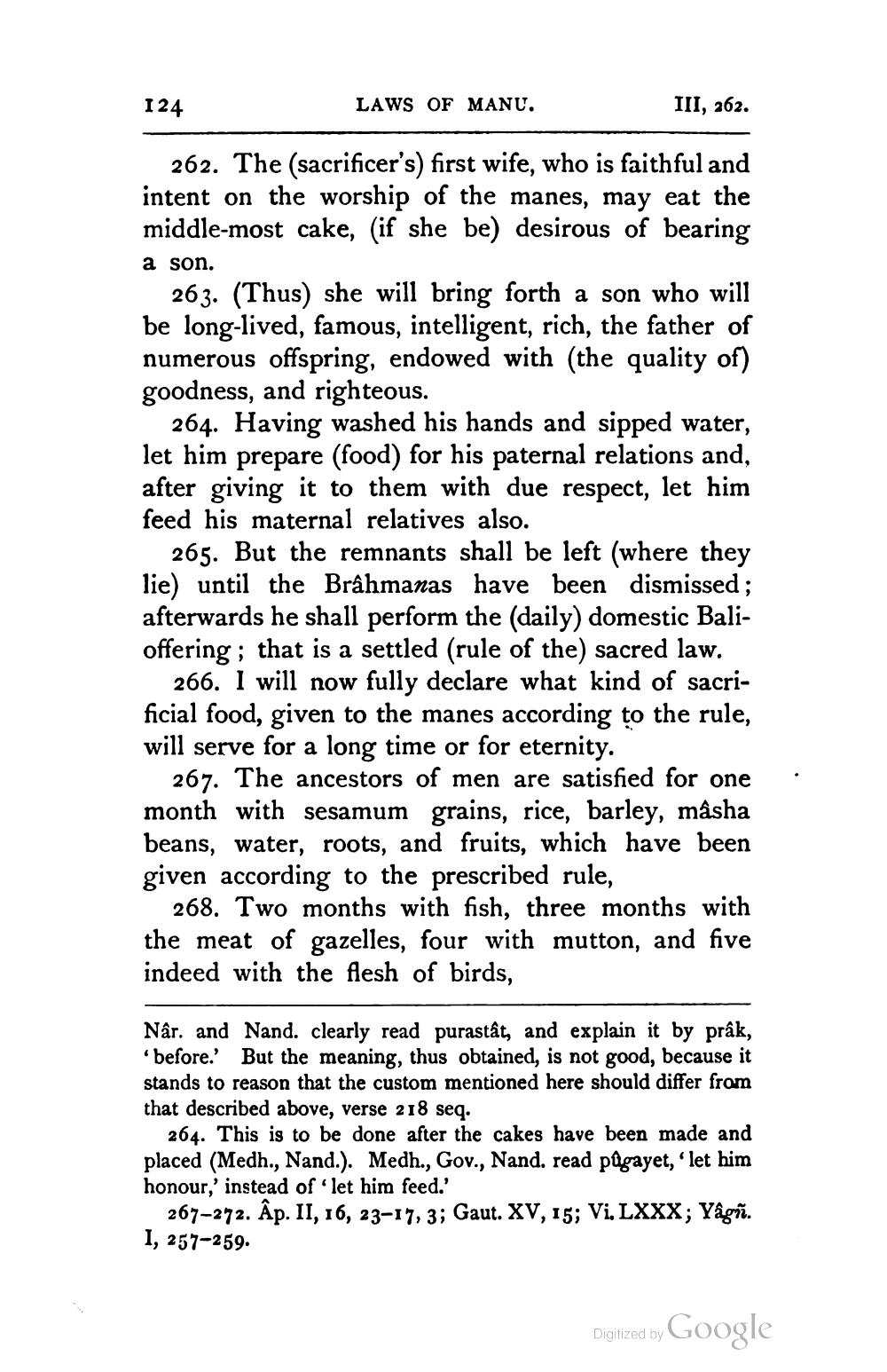________________
I 24
LAWS OF MANU.
III, 262.
262. The (sacrificer's) first wife, who is faithful and intent on the worship of the manes, may eat the middle-most cake, (if she be) desirous of bearing a son.
263. (Thus) she will bring forth a son who will be long-lived, famous, intelligent, rich, the father of numerous offspring, endowed with the quality of) goodness, and righteous.
264. Having washed his hands and sipped water, let him prepare (food) for his paternal relations and, after giving it to them with due respect, let him feed his maternal relatives also.
265. But the remnants shall be left (where they lie) until the Brâhmanas have been dismissed; afterwards he shall perform the (daily) domestic Balioffering ; that is a settled (rule of the) sacred law.
266. I will now fully declare what kind of sacrificial food, given to the manes according to the rule, will serve for a long time or for eternity.
267. The ancestors of men are satisfied for one month with sesamum grains, rice, barley, mâsha beans, water, roots, and fruits, which have been given according to the prescribed rule,
268. Two months with fish, three months with the meat of gazelles, four with mutton, and five indeed with the flesh of birds,
När. and Nand. clearly read purastât, and explain it by prak,
before.' But the meaning, thus obtained, is not good, because it stands to reason that the custom mentioned here should differ from that described above, verse 218 seq.
264. This is to be done after the cakes have been made and placed (Medh., Nand.). Medh., Gov., Nand. read pügayet,' let him honour,' instead of 'let him feed.'
267-272. Ap. II, 16, 23-17, 3; Gaut. XV, 15; Vi. LXXX; Yagñ. 1, 257-259.
Digitized by Google




